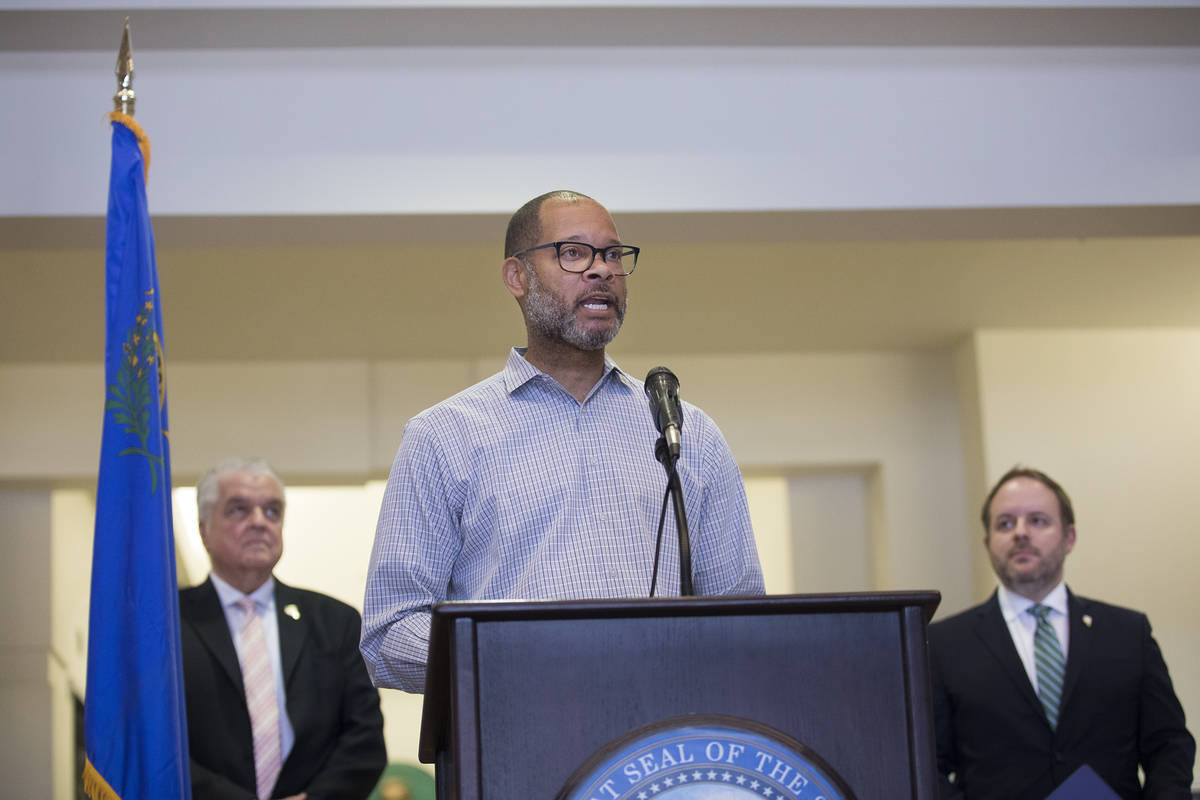Task force targets coronavirus fraudsters in Nevada
CARSON CITY — Nevada’s attorney general and U.S. attorney have assembled a new task force to crack down on scams and other crimes related to the new coronavirus.
The team, which includes 15 local, state and federal agencies, will focus on investigating tips and prosecuting crimes that exploit the COVID-19 pandemic, such as impersonation of government employees to obtain personal information, price gouging, promotion of fake cures and more, the offices announced Monday.
“We’re finding criminals who are looking to exploit fear and confusion to make a quick buck,” Nevada U.S. Attorney Nick Trutanich said.
The offices are asking people to file complaints with the attorney general’s office through its online complaint form or to share information related to their experience or other tips via either a hotline at 888-434-9989 or email at disaster@leo.gov.
The task force will take tips and then figure out which agency or agencies are best suited to investigate, and it will be a clearinghouse for tips and complaints, Trutanich said.
Nevada Attorney General Aaron Ford said the coordination between the various levels of government will be an asset by adding opportunities for people to report fraud and scams, and it will allow law enforcement to combine resources “to help better effect change.”
Know that we remain vigilant & are looking out for all Americans. We are on high alert & will prosecute those who prey upon Americans during this pandemic. Please call 866-720-5721 to report #COVID19 crime. We are all in this fight together.
➡️ https://t.co/kV3r8V0e9u pic.twitter.com/MwNv5VsgXy— U.S. Attorneys (@USAttorneys) April 14, 2020
“It will make sure we’re not duplicating efforts, that we marshal our resources in a way that’s most effective and efficient,” he said.
The attorney general’s office has been inundated by hundreds of calls about various fraud attempts, Ford said, from people impersonating government workers to exploit people looking for Medicare or unemployment insurance claims to various charity and investment scams.
While attempts to exploit the vulnerable are not new, there are more opportunities and avenues to exploit in this environment, Ford said.
Before President Donald Trump had even signed the $2.2 trillion relief package that will send most adults $1,200 stimulus checks, people were already setting up ways to scam recipients out of their checks, Ford said.
“These things are happening all the time, but they especially happen more frequently in times of crisis like this,” Ford said.
Contact Capital Bureau Chief Colton Lochhead at clochhead@reviewjournal.com. Follow @ColtonLochhead on Twitter.


















